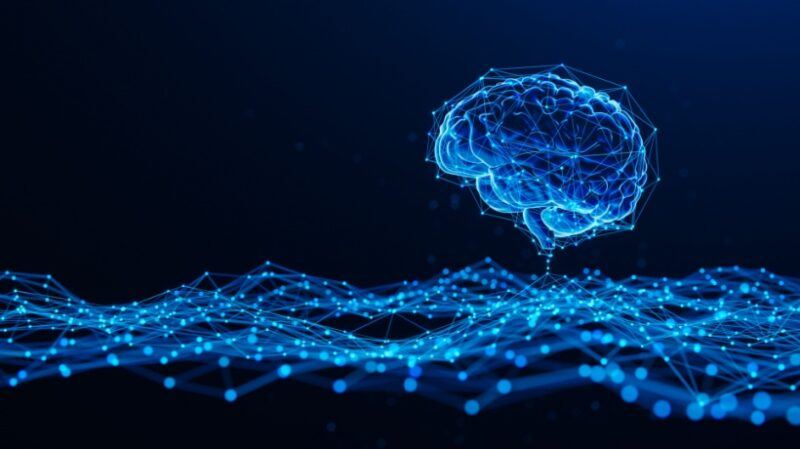

The place AI Innovation Embraces Ethics
Synthetic Intelligence (AI) in eLearning is like hearth: transformative however harmful if uncontrolled. In keeping with the 2024 EdTech Belief Report, 62% of learners now mistrust AI-driven platforms attributable to opaque knowledge practices. Right now’s problem is obvious: harness AI’s energy to ship personalised studying whereas making certain that ethics and privateness stay on the forefront. As we progress into 2025, eLearning platforms should undertake revolutionary methods involving moral AI for eLearning that defend delicate knowledge, foster transparency, and finally construct long-term belief with learners.
Tendencies In Moral AI For eLearning
Artificial Knowledge For Moral Personalization
One of many newest breakthroughs in eLearning is using artificial knowledge. AI instruments now generate synthetic learner knowledge that mirrors actual behavioral patterns with out exposing delicate particulars. By coaching AI fashions on this «pretend» knowledge, platforms can obtain hyper-personalization whereas safeguarding privateness. As an example, some platforms have reported a 40% discount in bias inside their advice techniques by leveraging artificial datasets.
Zero-Data Proofs (ZKPs) For Compliance
Zero-knowledge proofs enable a Studying Administration System (LMS) to confirm compliance with knowledge safety laws like GDPR with out disclosing uncooked knowledge. This cryptographic methodology presents a clear but safe approach to show that learner knowledge is correctly anonymized. The flexibility to exhibit compliance with out exposing delicate data is a significant step ahead in moral eLearning practices.
Neurodiversity-Pushed Consent Design
Consent varieties and privateness settings are sometimes neglected in eLearning design. Redesigning these interfaces to be extra inclusive utilizing visible sliders, audio summaries, and even emoji-based choices can considerably enhance engagement for neurodiverse learners. For instance, a significant on-line studying platform improved opt-in charges by 50% after revamping their consent move to raised swimsuit customers with ADHD and dyslexia.
The Intersection Of AI And eLearning: Advantages And Challenges
AI is revolutionizing eLearning by enabling extremely personalised studying paths and real-time adaptive content material. It could actually analyze a scholar’s progress and tailor course supplies to deal with particular weaknesses. Nonetheless, the extra personalised the expertise, the extra knowledge is collected. This raises key considerations:
- Knowledge assortment depth
eLearning platforms collect all the pieces, from login patterns and interplay occasions to quiz responses and biometric knowledge. Whereas these insights are invaluable for personalization, in addition they improve the chance of information misuse. - Safety vulnerabilities
With rising threats like quantum computing which might render present encryption strategies out of date, platforms should proactively undertake quantum-resistant algorithms to remain safe. - Moral dilemmas
There’s a delicate stability between leveraging knowledge for personalization and respecting learner privateness. Clear knowledge practices and strong moral frameworks are important to sustaining belief.
Finest Practices For Securing AI-Pushed eLearning Platforms
Superior Encryption And Steady Monitoring
State-of-the-art encryption strategies ought to be utilized to all knowledge, each in transit and at relaxation. Coupled with real-time monitoring techniques, these measures can rapidly detect and reply to suspicious exercise.
Clear Knowledge Insurance policies And Learner Empowerment
Empowering learners with management over their very own knowledge is essential. Clear, easy-to-understand privateness insurance policies and customizable consent settings not solely defend privateness but in addition construct belief between the platform and its customers.
Interdisciplinary Collaboration
Knowledge privateness and moral AI practices ought to contain groups from IT, authorized, and academic backgrounds. This collaborative strategy ensures that insurance policies are complete and aligned with each technological capabilities and moral requirements.
Future-Proof Guidelines For Moral eLearning
To make sure your eLearning platform stays revolutionary and safe in 2025 and past, contemplate the next actionable steps:
- Undertake federated studying
Substitute centralized AI fashions with decentralized techniques to reduce knowledge publicity. - Make the most of artificial knowledge
- Generate synthetic datasets utilizing instruments to anonymize coaching and keep excessive personalization with out compromising privateness.
- Implement zero-knowledge proofs
Use platforms to attain trustless compliance, proving knowledge safety with out revealing uncooked data. - Redesign consent for neurodiversity
Create inclusive consent flows with visible, audio, or emoji-based choices to raised serve all learners. - Improve to quantum-resistant encryption
Undertake next-generation algorithms to safeguard in opposition to future quantum computing threats. - Embrace steady knowledge safety coaching
Common coaching on knowledge safety greatest practices is important to maintain your platform safe.
Conclusion
The way forward for eLearning is not nearly leveraging AI, it is about constructing platforms which might be each revolutionary and ethically sound. As quantum threats loom and learners demand transparency, the following technology of eLearning should mix artificial knowledge, zero-knowledge proofs, and inclusive design to guard and empower its customers. The query is not whether or not to innovate, however how to take action responsibly. Embrace these methods and be part of the belief revolution in eLearning.